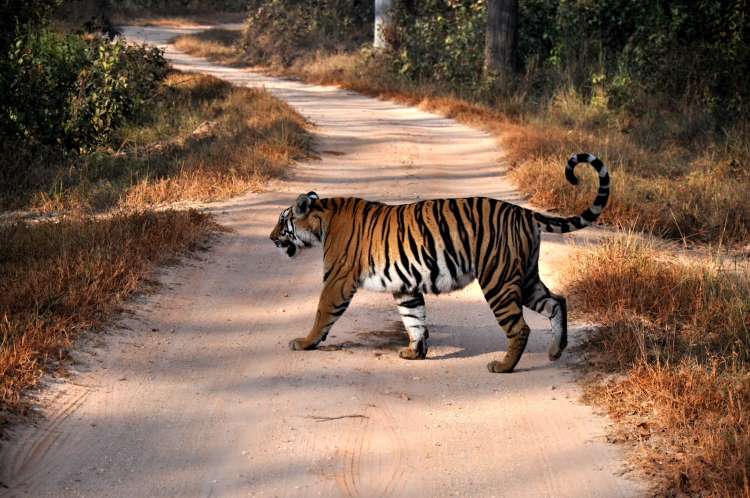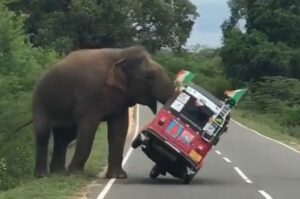
Kerala, renowned for its rich biodiversity and varied ecosystems, is grappling with an escalating human-wildlife conflict. The increasing encroachment of human settlements into wildlife habitats, coupled with rapid urbanisation and agricultural expansion, has heightened the frequency and intensity of encounters between humans and wild animals. These encounters often result in crop damage, livestock losses, and, in severe cases, human fatalities. On the other hand, wildlife faces retaliatory killings and habitat loss. This complex socio-economic and environmental issue stems from growing population and limited land resources, creating a delicate balance between human interests and wildlife conservation.
Fatalities from wildlife attacks in Kerala highlight the severity of the human-wildlife conflict, affecting not only those living near forest regions but also residents in urban and rural settlements. Between April 2016 and November 2024, 940 people lost their lives and 7,917 were injured in wildlife encounters across the state. Official figures reveal that snake bites are the leading cause of wildlife-related deaths, followed by elephant attacks, wild boar attacks, and tiger attacks.
Recognising the gravity of these conflicts, the Karnataka Forest Department organised an international conference to foster peaceful coexistence. Kerala, Tamil Nadu, and Karnataka agreed to collaborate on inter-state plans to mitigate wildlife risks, submitting these proposals to the Union Government for approval. This regional partnership aims to protect both human lives and wildlife through effective conservation strategies.
READ I Why taxing the super rich is an ethical and economic imperative
Human-wildlife conflict — A state-specific disaster
In response to rising fatalities and property damage, the Kerala government has officially categorised human-wildlife conflict as a state-specific disaster. This decision enables the mobilisation of resources, strategic planning, and coordination of efforts to reduce risks for both humans and wildlife. Measures include emergency response systems, efficient fund allocation, habitat management, and community awareness programs. This proactive approach is testimony to the state’s commitment to fostering sustainable human-wildlife coexistence while safeguarding citizen safety.

Balancing development and biodiversity conservation remains a critical challenge for Kerala, particularly in agricultural and urban areas near protected regions like Wayanad, Idukki, Kannur, and Kozhikode. Encroachment into natural habitats has intensified conflicts, threatening the survival of species like elephants, tigers, and snakes, while also disrupting local communities. The pressing question is how to ensure the survival of both wildlife and indigenous populations amidst growing population density and limited land resources.
Indigenous communities: Overlooked victims of conflict
The densely populated biodiversity hotspots of Kerala, such as Wayanad and Idukki, present unique challenges. Here, agricultural lands bordering protected zones create friction points. Indigenous communities, particularly in Wayanad, bear the brunt of these conflicts. Approximately 150,000 tribals face constant threat from wildlife, jeopardising their safety and livelihoods. Despite their vital role in conservation, these communities often go unrecognised in broader discussions. Highlighting their struggles and contributions is essential to empowering them as active participants in conflict mitigation and biodiversity preservation.
Kerala’s thriving tourism sector, crucial for local income and employment, is also under threat. Wildlife attacks in key tourist areas like Wayanad and Idukki have raised concerns, impacting visitor experiences. Unchecked deforestation and illegal encroachments disguised as tourism development further destabilise fragile ecosystems. Promoting sustainable tourism practices and involving local communities in preservation efforts are essential for long-term economic and environmental sustainability.
Threat of zoonotic diseases
Human-wildlife conflict in Kerala has also contributed to the spread of zoonotic diseases such as Kyasanur forest disease, Nipah, Lyme disease, and scrub typhus. Rapid urbanisation and habitat degradation increase the risk of disease transmission, placing additional strain on the healthcare system. Addressing these challenges requires improved health infrastructure, sustainable urban planning, and comprehensive measures to manage zoonotic risks.
Persistent wildlife threats have disrupted Kerala’s agriculture and dairy sectors, particularly in Wayanad and Idukki. Farmers face significant losses as wildlife encroachment damages crops and deters dairy farming. This economic insecurity undermines rural livelihoods, especially for women reliant on dairy production. Ensuring the safety and sustainability of agricultural practices is critical to revitalising these sectors.
Legislative and strategic reforms
To address human-wildlife conflict, Kerala has initiated several legislative and strategic reforms. Declaring it a state-specific disaster has led to the establishment of committees at multiple levels to enhance coordination. Measures include appointing the Chief Wildlife Warden as the nodal officer, deploying rapid response teams, and involving plantation owners in mitigation efforts. Additionally, proposed updates to the Forest and Wildlife Protection Act of 1972 aim to balance conservation with the rights of indigenous communities. Conducting comprehensive wildlife censuses and exploring wildlife birth control measures are also under consideration.
Addressing Kerala’s human-wildlife conflict requires a holistic approach integrating climate resilience, sustainable agriculture, and robust conservation strategies. The collaboration between Kerala, Karnataka, and Tamil Nadu marks a significant step toward developing coordinated plans. As discussions progress, it is imperative for the central government to support these efforts, ensuring harmony between humans and wildlife while safeguarding ecosystems and local livelihoods.
(Dr Jipson V Paul is member, Kerala Public Service Commission. Dr KP Vipin Chandran is Associate Professor of Economics at Krishna Menon Memorial Government Women’s College, Kannur.)
